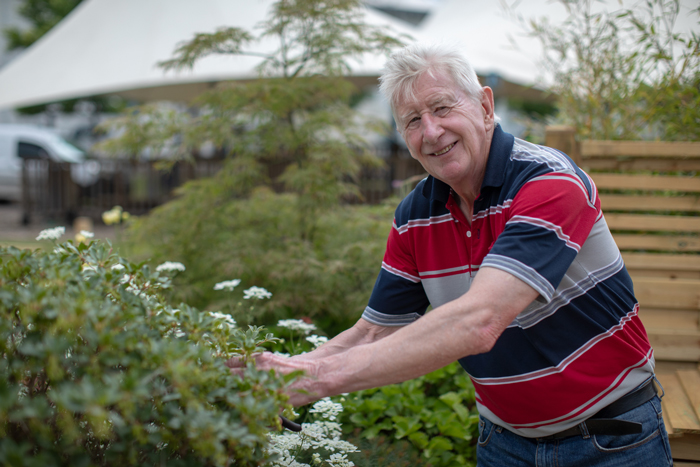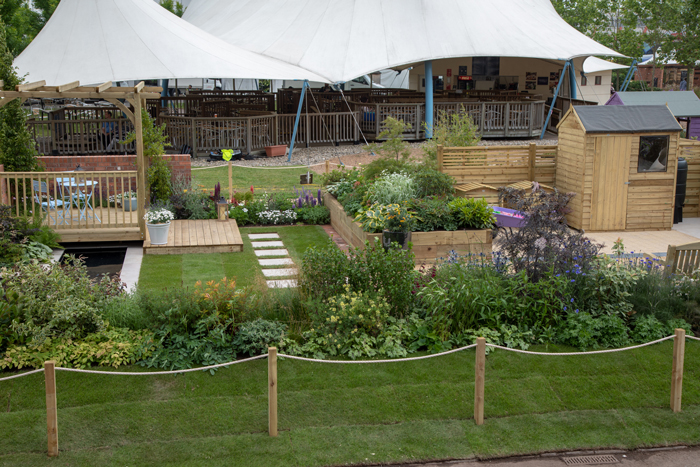Platinum award for Solutions Garden at GWL2018
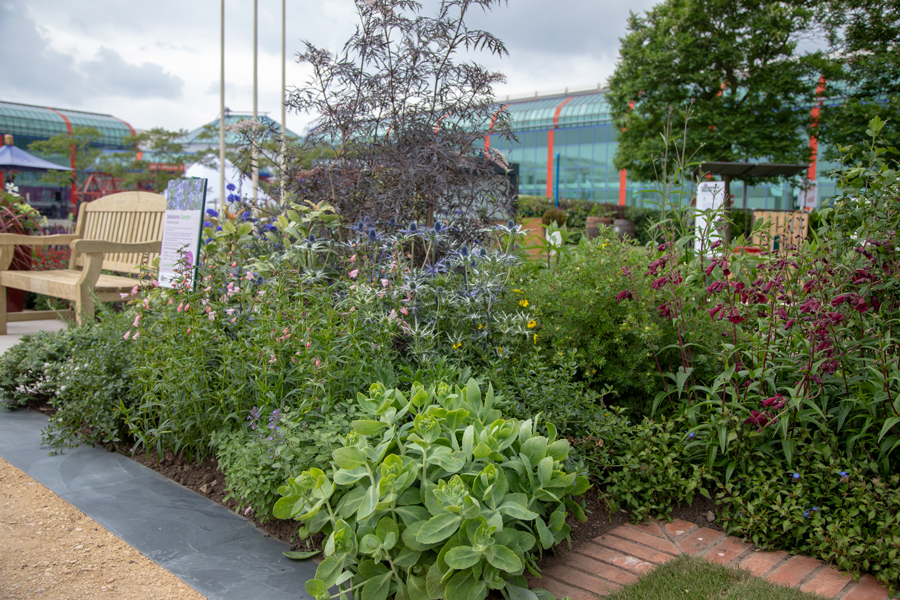 Wyevale Garden Centres have won a Platinum award, the highest available, for their ‘Solutions Garden‘ at Gardeners’ World Live 2018 at the NEC (14th – 17th June).
Wyevale Garden Centres have won a Platinum award, the highest available, for their ‘Solutions Garden‘ at Gardeners’ World Live 2018 at the NEC (14th – 17th June).
The Solutions Garden is a huge walk-through garden to show panicky planters stylish solutions to some of the UK’s most common gardening problems. The garden has been designed by Professor David Stevens, who was assisted on the build by 40 students from the Wyevale Garden Centres Horticultural Student Academy.
Gardeners can be faced with feeling guilty when their plants die, perhaps because they have chosen an unsuitable plant for their garden and they can be confused by long Latin names not to mention the seemingly endless choice of plants which all require different conditions and care. The ‘Solutions Garden‘ attempts to solve many of these gardening difficulties in a practical and easy to understand way.
Each area of the show garden is given over to a different problem and the correct answer is clearly explained. So whether it is how to deal with tricky spots such as dry shade, stylish solutions to growing your own or getting water into your garden, the Solutions Garden has the answers.
Professor David Stevens, (pictured above) designer of the Wyevale Garden Centres ‘Solutions Garden‘ said: “I’m delighted to have won a Platinum award for the Wyevale Garden Centres ‘Solutions Garden’. Gardening doesn’t need to be overwhelming or confusing – it’s supposed to be enjoyable and the aim of this garden is to give our nation of panicky planters the confidence to take control of their outdoor space. I hope is will help demystify many gardening questions such as planting in different soil types, tricky spots such as dry shade, dealing with weeds, lawn care and more.”
Here are some of the common problems that Professor David Stevens addresses in the ‘Solutions Garden‘ at Gardeners’ World Live 2018:
• Acid Soils: There are many plants such as Acers, Pieris, Camellias, Azaleas, Iris and summer flowering Heathers that enjoy an acid soil, which may not be present in your garden. The secret to growing them can be in a raised bed, where you can create the right soil mix by using an ericaceous compost. Such compost can also be used in pots and containers to grow your favourite acid loving plants.
• Alkaline Soils: Work with what you’ve got instead of trying to change your soil type. Alkaline, or chalky soils will be ideal for many species including shrubs such as Lavender, Ceanothus, Buddleja, Cytisus and Hibiscus. Some of the hardy perennials that enjoy these conditions are Dianthus, Agapanthus, Delphiniums, Alstromeria and Campanulas.
• Shade: Don’t let it be a problem! Soil can retain moisture and provide ideal growing conditions for a wide range of plants. Hydrangeas, Choisya, Hypericum, Ribes, Tiarella, and many grasses such as Miscanthus and Molinia will be perfectly happy.
• Dry Shade: Dry shade can provide difficult growing conditions for plants, but with the right treatment there are many perennials that will do well. Species such as Fatsia, Skimmia, Viburnum tinus, Sarcococca and Hypericum calycinum will be ideal. Perennials that will do well include Anemone japonica, Euphorbia robbiae, many Ferns, Alchemilla and Hellebores. Make sure you add as much organic material to the beds as possible, which will help retain moisture and improve soil condition.
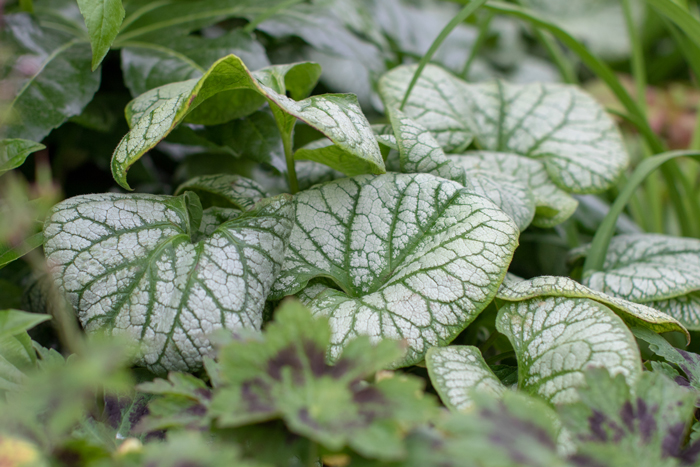
• Drought Tolerant Planting: Summers are tending to become hotter and drier and we are often able to use plants that thrive in such conditions to bring added colour and interest to our gardens. Species to choose from could include such shrubs as Abelia, Perovskia, Jasmine and Ceanothus while many herbs such as Rosemary, Lavender and Sage will thrive. Hardy perennials such as Euphorbias, Sedum, Nepeta, Pennesetum and Heucheras will all be particularly suitable and don’t forget to apply a thick mulch after planting to help retain moisture in the soil.
• Moisture Loving Planting: If you can create or already have a damp area in the garden you can grow some wonderful and really show stopping plants. Hydrangeas, Spirea and Kerria will benefit greatly while there is a wealth of hardy perennial planting with old favourites such as Hosta, Astilbe, Iris and Aruncus. Add to this more unusual species such as Rheum, Rogersia, Ligularia and Lobelia cardinalis and you will have a feast of colour and interest.
• Weed suppression: While a well-planned border is knitting together, weeds can be a problem and it can make sense to minimise this both by thorough cultivation before planting to remove any perennial weeds and by using a mulch of chipped bark once everything is in position, which will also help keep the soil moist. Should you want to create a ‘gravel’ garden with plants growing through then a carefully laid ‘weed mat’ can be invaluable carefully positioned below the finished surface.
• Soil Preparation: Good soil means good plants. Thorough cultivation using the right tools will be the order of the day as well as incorporating both soil conditioners in the form of composts and maintaining ongoing nutrition using the correct fertilisers. Remember that good husbandry and regular soil treatment is an ongoing and satisfying job and your plants will benefit enormously from it.
• Lawn Care: A good lawn is the crowning glory of many a garden and while you may not want a bowling green it will make sound sense to keep your sward in the best condition possible. Aeration and scarifying will help maintain healthy growth and combat moss while a regular ‘weed and feed’ will quickly show real benefits. Choosing the correct seed mix will ensure that the finished surface suits the purpose for you and your family and a well-chosen mower will save you time and keep maintenance to a sensible minimum.
• Permeable Surfaces: With the increasing risk of flood caused by ‘run off’ it is essential that we think of using more permeable surfaces in the garden, such as gravel ‘hoggin’ paths that allow water to percolate through. Paving should be laid to gentle fall away from the house and into beds or a lawn area. A decked area is another good choice and will naturally allow water to drain through to the ground below, as will planted areas of gravel within a border.
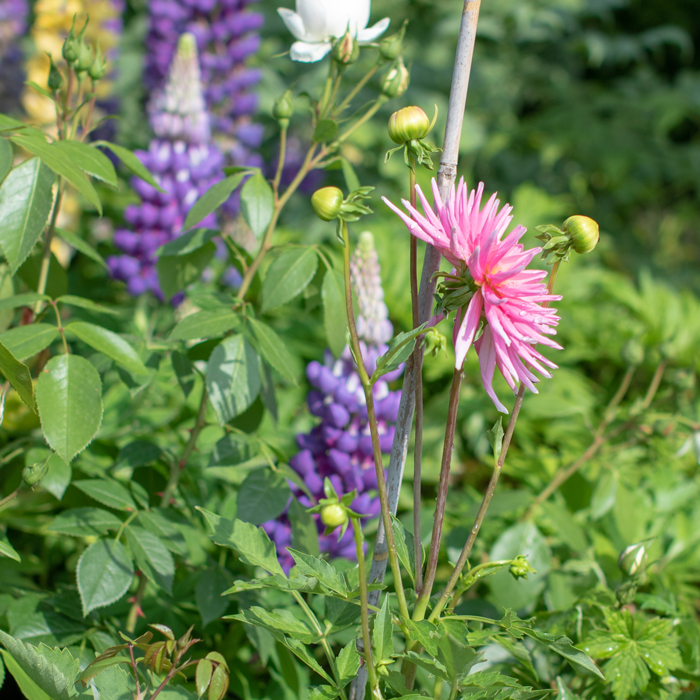
• Water Features and water conservation: While the overuse of water should be discouraged in a garden it can certainly provide real benefits to wildlife and of course provide a wonderful focal point. Features can range from a simple ‘millstone’ fountain to ponds and pools of all shapes and sizes. If incorporating the latter, be aware that frogs and other creatures need an escape route so a beach or a few well-placed stones at the margins will easily allow this. Should you have a shed or other garden building it can be a great idea to collect water from the roof in a water butt, great for irrigation in dry weather.
Wyevale Garden Centres will also be demonstrating tips and examples of ‘planting in the shade’ as part of its ‘Solutions Garden‘ at Gardeners’ World Live, 14-17 June 2018 at Birmingham NEC. For more information, visit www.bbcgardenersworldlive.com
Photo credits: All photographs are © Wyevale Garden Centres.

